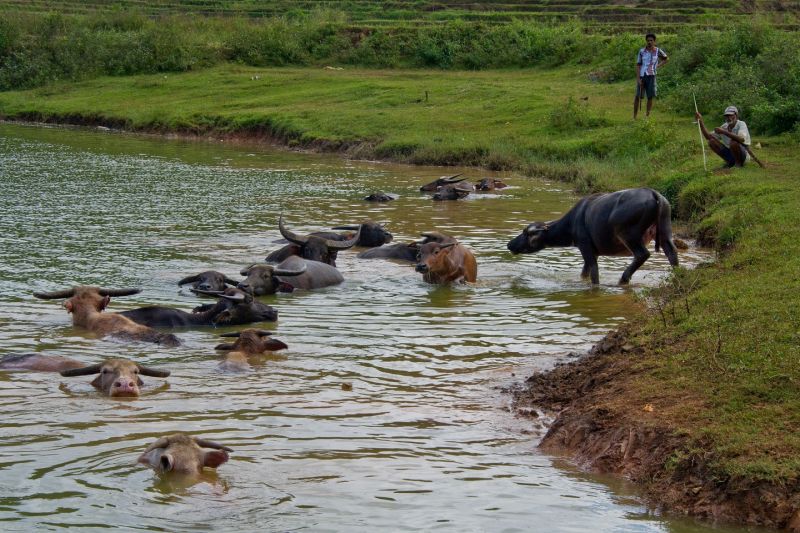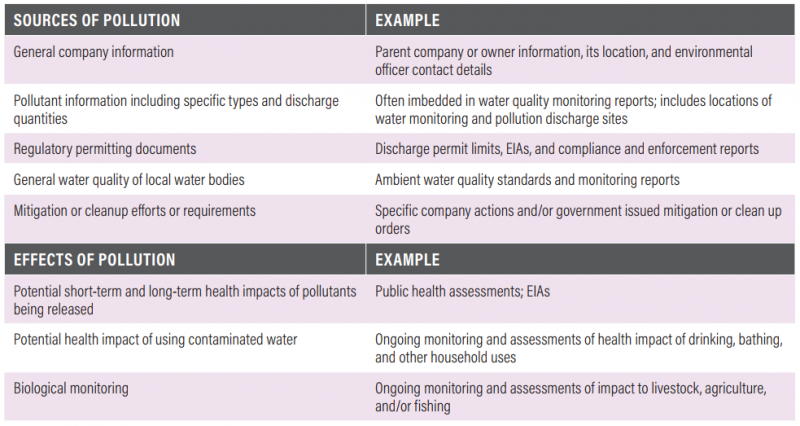Asians in the Dark about Region’s Water Pollution Crisis
Published on by Water Network Research, Official research team of The Water Network in Academic
Asia’s industrial boom is exacerbating water pollution in the region, but research shows the rural poor have little information about who is polluting their water, the toxins they are exposed to, and the resulting health impacts.
Asia is home to a worsening water pollution crisis thanks to an accelerating but weakly regulated industrial boom, but its most vulnerable citizens are kept in the dark about whether the water they use for drinking, farming and fishing is safe, a new report by think tank World Resources Institute (WRI) has found.

Water buffalos taking a bathin a small lake in Sumba Island, Indonesia. Industrial facilities release upwards of 400 million tons of toxic pollutants into the world’s waters each year, but downstream rural communities may not always have access to information about how this affects them.
Image: Asian Development Bank, CC BY-NC-ND 2.0
Titled ‘Thirsting for Justice: Transparency and Poor People’s Struggle for Clean Water in Indonesia, Mongolia, and Thailand‘ and released on August 30 at the World Water Week in Stockholm, the report found that despite the fact that the governments of the three countries studied are legally required to be transparent about water quality information, they are flouting these laws.
This has dire implications for the health of impoverished rural communities and their livelihoods, added WRI, which conducted the research as part of its Strengthening the Right to Information for People and the Environment (STRIPE) programme.
The common means by which governments communicate this information to the public are state of the environment reports, environmental impact assessments, permitting registers, environmental disclosure ratings, pollutant release and transfer registers, and data portals.
When it comes to laws about heeding right to information requests on environmental issues, Thailand and Indonesia legally require their governments to release documents about pollution impacts, facilities, and water monitoring information to communities; Mongolia only has laws around the release of radioactive or poisonous substances.
While the legal provisions are broad, there is a lack of clarity around exactly how the information should be made available to communities, observed WRI.
Communities living in the area allege that the authorities are not only allowing pollution violations to occur on their watch, they are also failing to inform people about pollution-related incidents.
The report adds that the local community has requested a list of factories that do not comply with environmental laws from the government, along with the specific pollutants being released and their health impacts.
But while the government has released some information such as the locations of factories releasing pollutants into the river, it never released a list of factories violating the law, or details about the health impact of pollutants.

Types of information about water pollution that communities need.
Image: World Resources Institute
Reform needed
WRI recommended a slew of measures to address this major information gap. Chief among them is the development of a centralised system that collates data from national and sub-national agencies reporting on water quality issues, and serves as a single point of information for communities.
Governments in these countries should also take care to ensure that data is released in a format and language that communities can understand through means such as community information centres, guidebooks, simple signs and radio alerts, and work closely with locals to get a better sense of the types of data that people want, and how they prefer to access it.
Collaboration with the private sector and state-owned companies can help policymakers improve on transparency efforts, said WRI. It went on to urge community members and civil society to become more engaged in water quality issues, build capacity on how to demand better information from the government, and engage in policy discussions.
Lastly, international donors that are focusing on water issues should make more resources available to civil society and governments to help them improve how information is communicated to communities, and used by people.
John Knox, the United Nations Special Rapporteur on Human Rights and the Environment, said in a statement that ultimately, “people have the right to know about hazardous pollution in the waterways on which they rely”.
“Governments that fail to provide that information are violating their citizens’ human rights,” he added.
Source: Eco-Business
Media
Taxonomy
- Water Pollution
- Environmental Consequences
- Environment
- Pollution
- Water Pollution Control
- Environment Protection and Pollution control